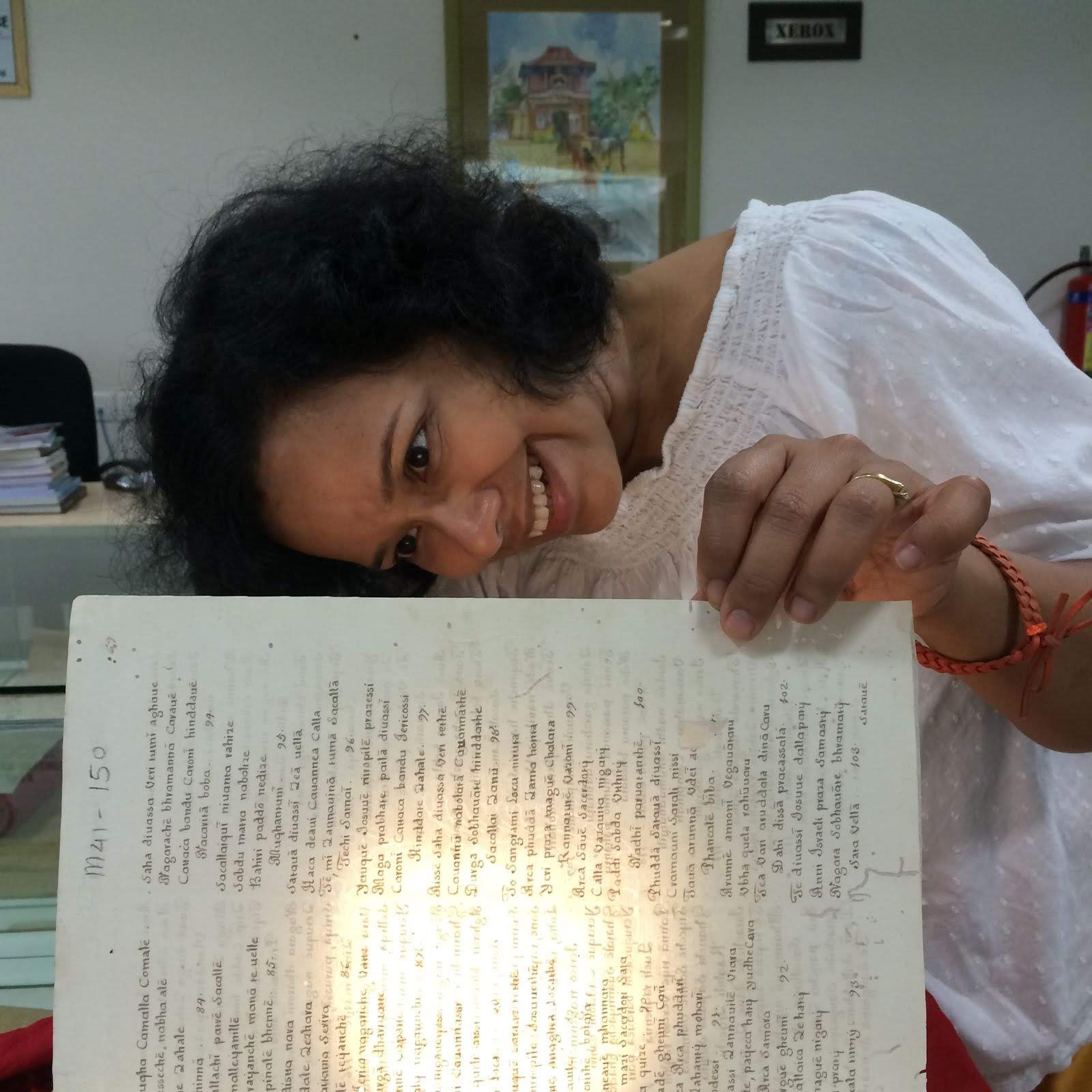Profile with Nandini Das
Nandini Das (India & University 1997) is currently Professor of Early Modern Literature and Culture and Fellow of Exeter College at the University of Oxford, and holds an honorary professorship at the University of Liverpool. Her interests are cross-cultural encounters, travel and identity in the sixteenth and seventeenth centuries, Shakespeare, and the Renaissance. Nandini received a PhD from the University of Cambridge following her Rhodes Scholarship to the University of Oxford, and holds a BA from Jadavpur University. She is the Vice-President of the Hakluyt Society, and Literature Delegate for Oxford University Press. Her next book on the first English embassy to India will be out with Bloomsbury in 2023. Following her stint as a BBC New Generation Thinker, she continues to present frequently on television and radio.
Twitter: @rentravailer
Rhodes Project: Can you tell me a favourite memory of Oxford?
Nandini Das: There are quite a few but I suppose some of the most abiding memoires are from staying up all night desperately trying to finish an essay and then walking back from an early morning tutorial the next day. Usually it would be raining and the High Street would be filled with rain and all the apple blossoms shed from the trees and I’d get that weightless feeling that only acute sleep deprivation and lots of caffeine (and the feeling of having finished another tutorial) can bring.
Rhodes Project: What inspired your love of Renaissance and Shakespeare in particular?
Nandini Das: I’ve always read constantly and I was voracious enough to be fairly indiscriminate in my reading right from when I was a child. Then when I was about ten, Indian national TV started doing a rerun of the BBC Shakespeare series and I remember seeing Vanessa Redgrave in As You Like It and that was absolutely enthralling. Apart from that I think I was lucky enough to have come across immensely inspirational teachers at school and university in India who were really true renaissance men and women in their own ways. It was the conjunction of all of those influences I think.
Rhodes Project: What is the most challenging or frustrating part of your job?
Nandini Das: Maintaining balance; a balance between teaching and research, and between research and your personal life. Quite often when you get into the teaching term you tend to forget that you’re also meant to be doing original research and there’s hardly any time for that, and then when you’re doing research you can forget that there is a world outside the four walls of the library or the study and people are actually living their lives now rather than in the two hundred or three hundred years ago that you are studying. Balance is the big challenge.
Rhodes Project: If you weren’t a professor, what do you think you might be doing instead?
Nandini Das: Well given that I studied the sciences at high school and for some time in my early career I was to-ing and fro-ing between software development and the humanities, I think it would probably be something in software programming. I’ve always been interested in knowledge management and the sheer amount of information we have available to us and how you turn that information into actual usable knowledge. So I’d do something along those lines, dealing with numbers rather than text.
Rhodes Project: What do you feel you have learnt from your students?
Nandini Das: The main thing, the one thing that you learn very crucially and early on when you start teaching, is that you really can’t take anyone else’s interest for granted in anything you personally might find fascinating. There’s absolutely no guarantee that, despite the fact that you might have spent years reading a text and being absolutely obsessed with it, anyone else is going to think it’s even remotely interesting. But if you can kind of share even a little iota of your interest with someone else it makes it feel like it’s worth it, I think.
Rhodes Project: If you could meet one female historical figure, who would it be and why?
Nandini Das: The female writer Mary Wroth who’s not very well known at all. She’s the first English woman to write and publish an original work of prose fiction, largely based on her own very long and protracted, and very unhappy extra marital affair in the early 17th century. It’s one of the first written precursors to the English novel. Part of my first book was about her, so she would be the person that I’d most like to meet. If I’m allowed a second female it would probably be Rani Lakshmibai, a very unusual female figure of her time. She led her troops into battle in the India conflicts of 1857.
Back to Scholar Profiles A-E
© 2023

